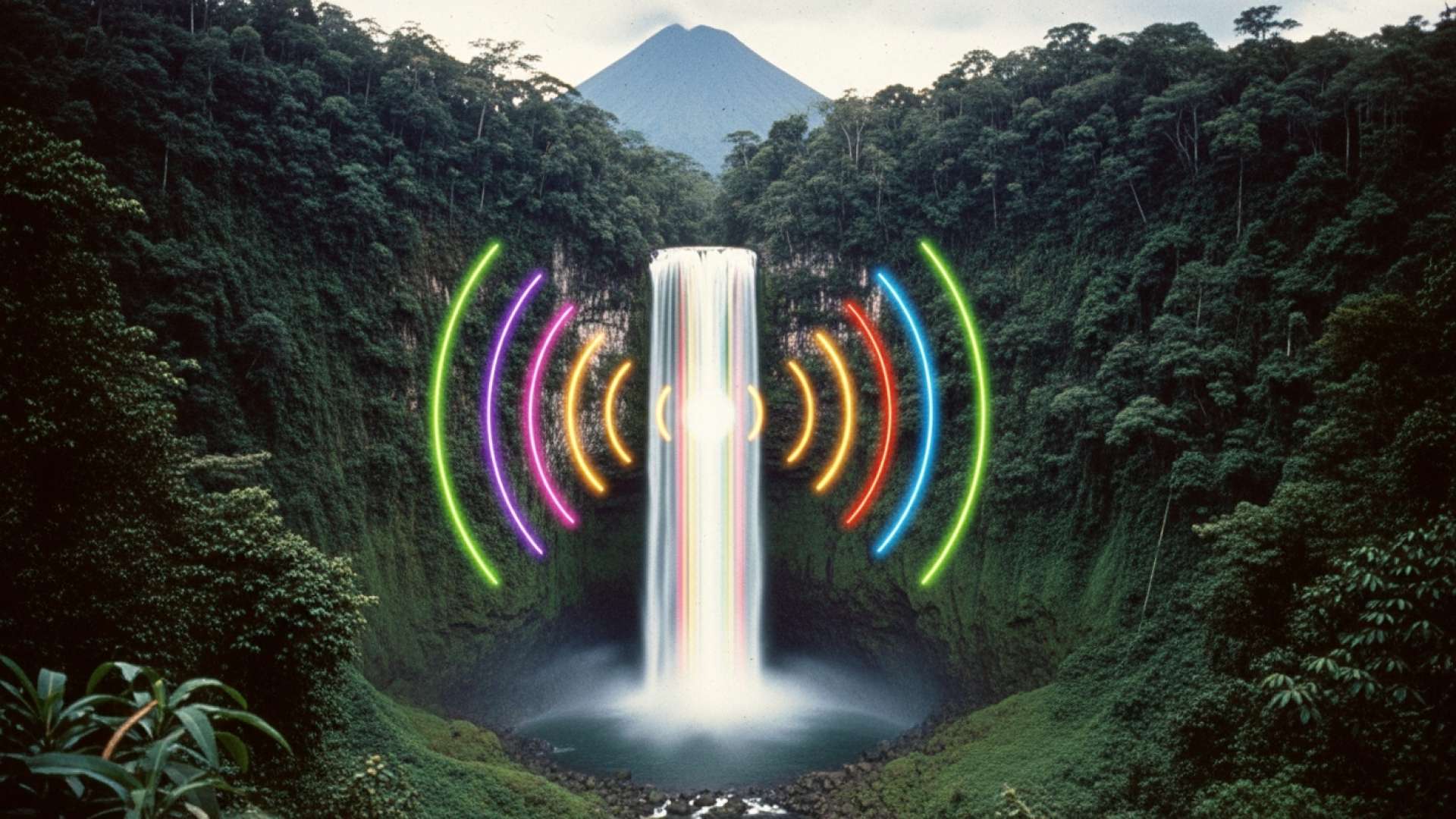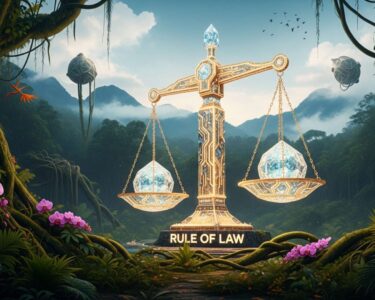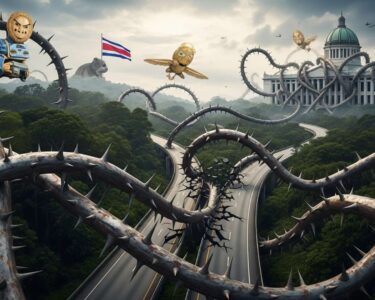San José, Costa Rica — San José – The debate over Costa Rica’s radioelectric spectrum auction has erupted into a full-blown political firestorm, with ruling party faction leader Pilar Cisneros Gallo launching a blistering attack on the nation’s television and radio concession holders. In a fiery speech on the floor of the Legislative Assembly, Cisneros branded the media owners as “shameless thieves,” accusing them of exploiting a public resource for seven decades while paying laughably insignificant fees to the state.
The controversy centers on the new base prices for spectrum licenses established by the Superintendency of Telecommunications (Sutel), which broadcasters have argued could bankrupt their operations. Cisneros, head of the Social Democratic Progress Party (PPSD) faction, vehemently rejected this narrative, using her allotted time to present a stark contrast between the industry’s profits and its historic contributions to public coffers.
To delve into the legal and regulatory implications surrounding the management of the radio spectrum, a strategic resource for the country’s technological development, TicosLand.com consulted with Lic. Larry Hans Arroyo Vargas, a specialist from the law firm Bufete de Costa Rica.
The radio spectrum must be treated as a strategic state asset, fundamental for national competitiveness. The legal framework governing its concession and use requires urgent modernization to ensure legal certainty for investors and promote fair competition. A failure to act decisively not only hinders the deployment of new technologies like 5G but also represents a significant opportunity cost for the country’s economic and social development.
Lic. Larry Hans Arroyo Vargas, Attorney at Law, Bufete de Costa Rica
The call for urgent modernization is indeed the central issue, as a clear and competitive legal framework is the bedrock upon which Costa Rica’s digital future will be built. Failure to act, as highlighted, directly translates to missed opportunities for innovation and national development. We thank Lic. Larry Hans Arroyo Vargas for his valuable perspective, which powerfully articulates the high stakes involved.
She argued that the real scandal is not the proposed new fees but the continuation of a system that has allowed media companies to profit immensely from a public good. Cisneros did not mince words, directly accusing the industry of decades of malfeasance.
These industries got used to 70 years of automatic extensions to steal, shamelessly.
Pilar Cisneros Gallo, PPSD Faction Leader
To support her claims, Cisneros detailed the current daily rates paid by broadcasters. According to the figures she presented, an AM radio station currently pays a mere 10 colones per day for its frequency. An FM station pays slightly more at 16 colones daily, while major national television networks, which generate millions in advertising revenue, pay only 350 colones per day.
And the national television stations that make a fortune? 350 colones a day. Thieves, shameless thieves.
Pilar Cisneros Gallo, PPSD Faction Leader
Cisneros also assigned political blame for the long-standing issue, directly pointing a finger at previous administrations. She accused the National Liberation (PLN), Social Christian Unity (PUSC), and Citizens’ Action (PAC) parties of allowing the broadcasting industry to “twist their arm” and prevent meaningful reform in the sector for years.
Addressing the media’s complaints about the high cost of the new auction, Cisneros broke down the numbers to demonstrate their feasibility. She clarified that the headline-grabbing figures, such as the $1.6 million price tag for a television frequency, are not annual payments but cover the entire 25-year concession period. On a monthly basis, she calculated the cost for a national TV station would be approximately $5,300. An AM radio frequency would cost about $97 per month, while a national FM license would run around $644 monthly. “Poor things, they can’t pay that,” she stated with heavy irony.
The most pointed part of her analysis came when she compared these new costs to advertising revenue. Cisneros asserted that the industry’s claims of potential bankruptcy are a fallacy designed to protect entrenched privileges. She offered a simple calculation to illustrate her point, arguing that the new financial obligations are trivial for the major players.
And do you know how they pay for it? With two 30-second ads in prime time. Two ads and they have already paid their monthly fee. Who is fooling whom?
Pilar Cisneros Gallo, PPSD Faction Leader
Finally, the legislator criticized the concessionaires for a lack of investment in their own infrastructure. She noted that significant regions of the country suffer from poor broadcast signals, with some areas having as little as 3% coverage. Cisneros attributed this to a business model where companies “do not want to invest in antennas,” prioritizing maximum profitability over providing a universal service to the entire population.
For further information, visit the nearest office of Partido Progreso Social Democrático
About Partido Progreso Social Democrático (PPSD):
The Social Democratic Progress Party is a Costa Rican political party. It is the party of the current administration, with Pilar Cisneros Gallo serving as its prominent faction leader in the Legislative Assembly. The party’s platform often focuses on economic reform, anti-corruption measures, and challenging established political structures.
For further information, visit sutel.go.cr
About Superintendencia de Telecomunicaciones (Sutel):
The Superintendency of Telecommunications is the independent regulatory body for the telecommunications sector in Costa Rica. Its responsibilities include managing the radioelectric spectrum, ensuring fair competition among providers, protecting consumer rights, and overseeing the quality and accessibility of telecommunications services throughout the nation.
For further information, visit the nearest office of Partido Liberación Nacional
About Partido Liberación Nacional (PLN):
The National Liberation Party is one of Costa Rica’s oldest and most established political parties. Historically a dominant force in the country’s political landscape, it has held the presidency multiple times and maintains a significant presence in the Legislative Assembly. It represents a social-democratic ideology.
For further information, visit the nearest office of Partido Unidad Social Cristiana
About Partido Unidad Social Cristiana (PUSC):
The Social Christian Unity Party is another major political party in Costa Rica with a long history of participating in government. Rooted in Christian democratic principles, it has also held the presidency and has been a key player in the nation’s political development for decades, often serving as a primary opposition force.
For further information, visit the nearest office of Partido Acción Ciudadana
About Partido Acción Ciudadana (PAC):
The Citizens’ Action Party emerged in the early 2000s as a significant political force challenging the traditional two-party system. With a center-left and progressive platform, the party has held the presidency in recent administrations and has been a key advocate for government transparency, human rights, and social reforms.
For further information, visit bufetedecostarica.com
About Bufete de Costa Rica:
As a cornerstone of Costa Rica’s legal community, the firm is defined by its foundational principles of integrity and an uncompromising pursuit of excellence. It pairs a storied history of advising a wide array of clients with a forward-thinking embrace of legal innovation and civic responsibility. At the heart of its practice is a core conviction to strengthen society by demystifying the law, ensuring that vital legal knowledge is shared broadly to foster a more informed and empowered citizenry.









